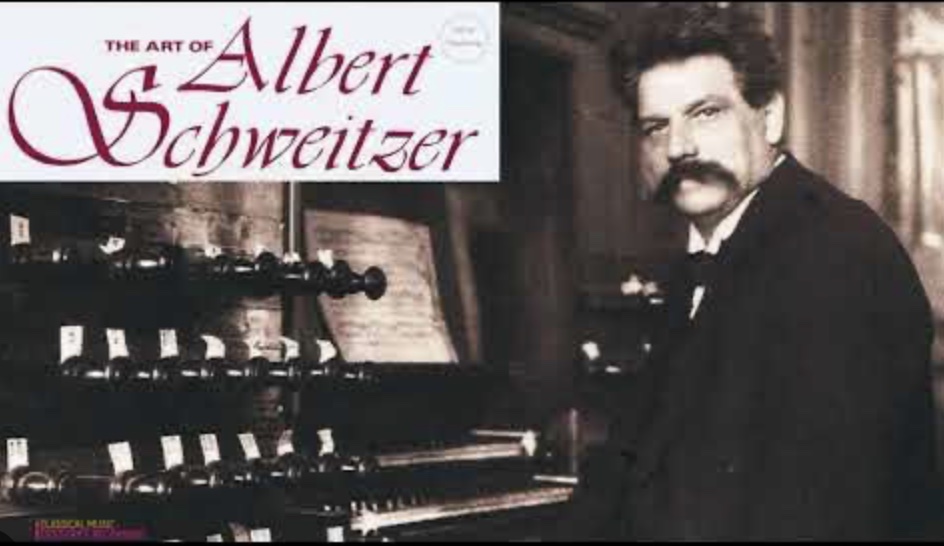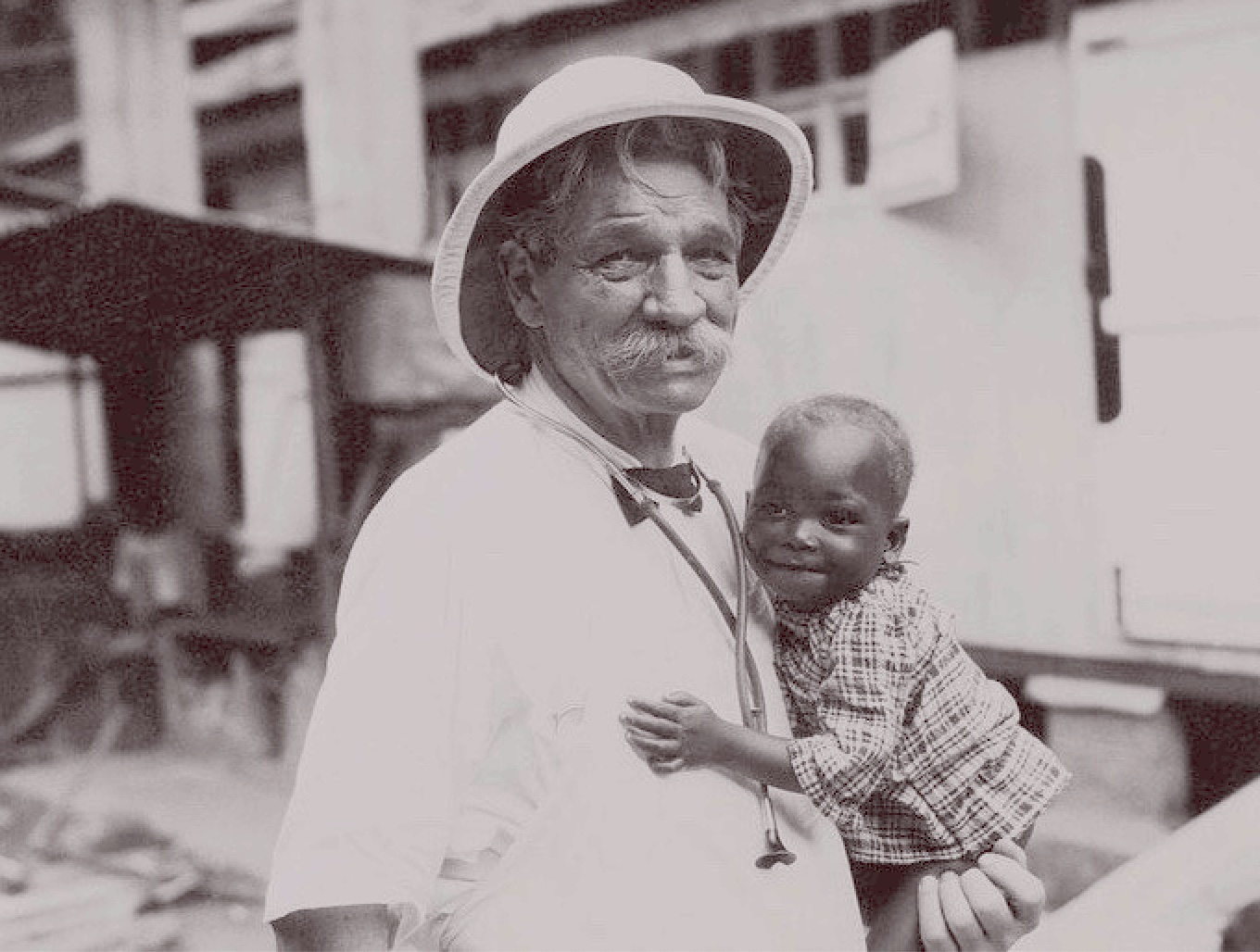Albert Schweitzer is one of international health’s most fascinating personalities. Born in on the border between France and Germany in 1875, by age 30 Schweitzer distinguished himself with advanced accomplishments in theology, philosophy and music. Most notably, Schweitzer transposed Bach’s renowned compositions from orchestra to organ, and traveled throughout Europe with the Paris Bach Society performing to considerable acclaim.
At the age of 30, Schweitzer received an appeal from Paris Missionary Society for a physician to serve in west Africa. One biographer documents what happened next: “Amid a hail of protests from his friends, family and colleagues, Schweitzer resigned his post and re-entered the university as a student in a three-year course towards the degree of Doctorate in Medicine… He planned to spread the Gospel by the example of his Christian labor of healing…”
Over the next 50 years – including a period being interned during World War I – Albert Schweitzer lived in what became of the nation of Gabon, West Africa. His autobiography is filled with accounts of caring for Africans who suffered from dysentery, malaria, sleeping sickness, leprosy, poisonings, and surgical emergencies. Throughout these decades, Dr. Schweitzer continued to compose works of theology and philosophy, most notably The Quest of the Historical Jesus (a rebuttal against growing liberal interpretation of scripture) and literary works expanding the principle of Reverence for Life – for which he was recognized with the 1952 Nobel peace prize. Visitors to his remote hospital he also regularly entertained through organ recitals well into the nights.


